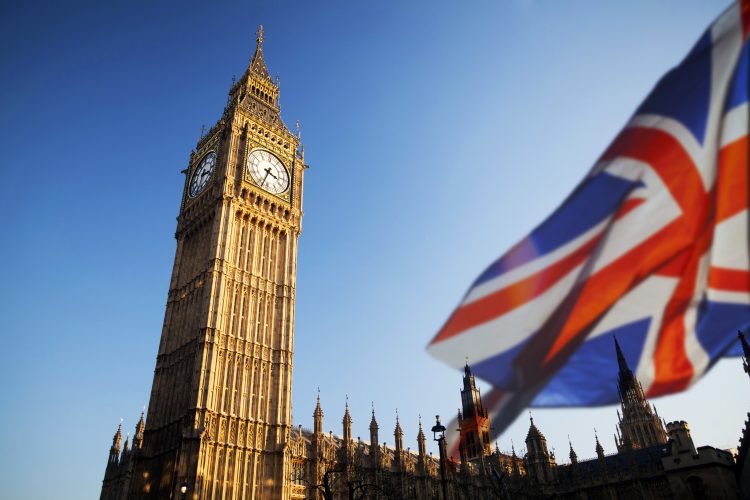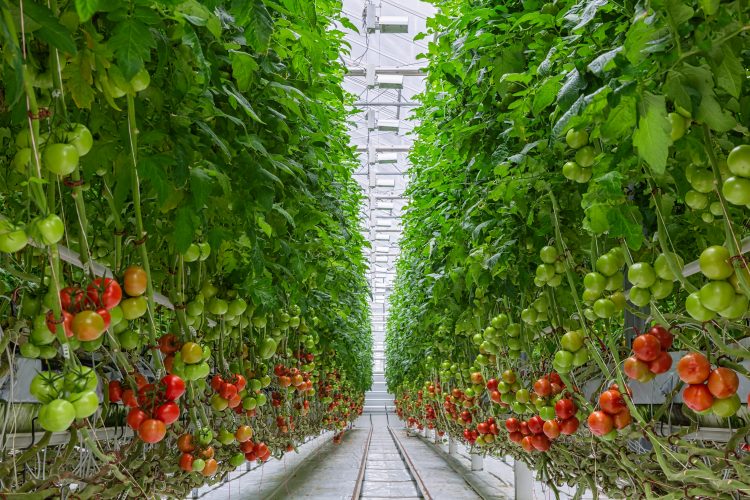“Thin gruel” – Government food strategy blasted by industry
- Like
- Digg
- Del
- Tumblr
- VKontakte
- Buffer
- Love This
- Odnoklassniki
- Meneame
- Blogger
- Amazon
- Yahoo Mail
- Gmail
- AOL
- Newsvine
- HackerNews
- Evernote
- MySpace
- Mail.ru
- Viadeo
- Line
- Comments
- Yummly
- SMS
- Viber
- Telegram
- Subscribe
- Skype
- Facebook Messenger
- Kakao
- LiveJournal
- Yammer
- Edgar
- Fintel
- Mix
- Instapaper
- Copy Link
Posted: 13 June 2022 | Joshua Minchin (New Food) | No comments yet
The Government Food Strategy white paper, published today, has come in for considerable criticism from the food industry, with many claiming it lack substance and planning.


The Government's food strategy has been presented to the House of Commons
The UK Government has today (13 June) published its response to the National Food Strategy published by Henry Dimbleby in 2021 – and it is fair to say that the response has been mixed to say the least.
The Government Food Strategy white paper, presented to the House of Commons today by Secretary of State for Environment, Food and Rural Affairs George Eustice, sets out “how we will back farmers, boost British industry and help protect people against the impacts of future economic shocks by safeguarding our food security,” Prime Minister Boris Johnson told the BBC.
The review, the scope of which is limited to England as food policy in the UK is devolved, did reveal some interesting clues to the direction of travel of government strategy in the coming years, but it has been criticised for lacking in substance and planning.
Soil Association Head of Food Policy Rob Percival called the white paper “thin gruel”.
“At a time when people are going hungry and the climate, nature and public health crises are escalating, the absence of leadership is palpable.
However, Percival did add that there “are fragments of policy that offer hope.”
Anna Taylor, Executive Director of The Food Foundation who will be presenting a keynote speech at the Food Safety Conference, was less forgiving.
“Today’s White Paper shows that no one in leadership in government appears to have really grasped the scale and urgency of the challenges posed to our health and our planet by the food system,” she said.
“What’s more, these challenges are growing exponentially with the cost-of-living crisis. Despite its name, the whole document is lacking a strategy to transition the food system towards delivering good food which is accessible to everyone. And without a commitment to a new Food Bill, many of the commendable commitments made are in reality toothless. It is a feeble interpretation of Henry Dimbleby’s recommendations, which will not be sufficient to drive the long-term change that we know is so urgently needed.”
Even Henry Dimbleby, author of the National Food Strategy which prompted this white paper, was less than impressed with the outcome.
“It’s not a strategy,” he told The Guardian. “It doesn’t set out a clear vision as to why we have the problems we have now and it doesn’t set out what needs to be done.”
What’s in the strategy?
Sustainability and food security are both high on the agenda, with the report taking time to highlight how much the Ukraine conflict has impacted UK food imports. The Government says it will continue with its policy to move away from Direct Payments to farms and instead look to alternative vehicles of funding, including the Sustainable Farming Incentive, “which will incentivise farmers to improve soil quality, invest in hedgerows, encourage optimal use of fertiliser and pesticides, and support regenerative practices such as agroforestry.”
Aside from this, industrial horticulture – in particular the growing of tomatoes and cucumbers in greenhouses – was highlighted as an area for potential growth. Seafood was also described as “potentially lower-carbon and healthy source of protein which can grow sustainably to fulfil its potential within the food sector.” An investment of £24 million was confirmed to support seafood science and innovation.
However, the strategy did come in for criticism for a lack of imagination and investment when it came to alternative proteins, which many see as an integral part of any modern food system.
“The Food Strategy White Paper is a missed opportunity, and ignores the potential that plant-based foods offer to progress the Government’s climate and health objectives,” said Marisa Heath, Chief Executive of the Plant-based Food Alliance UK.
“Plant-based food and drink has incredible potential to deliver on the Government’s aims, and we hope that Ministers will do more to embrace our sector in the months and years ahead.”


Industrial horticulture, such as growing tomatoes in greenhouses, has been highlighted as an area of potential growth
Healthier eating
Understandably, a large portion of the white paper is devoted to reducing rates of obesity in both adults and children, which the strategy says stands at 64 percent of adults and 40 percent of children.
In 2021, Dimbleby had suggested a levy on sugar and salt tax, the revenue of which would be used to expand the free school meals programme and help lower-income families gain access to fresh fruit and vegetables. This is notably absent from the white paper, which instead insists there is a “shared responsibility to identify the solution to obesity.”
It appears as if the food industry will have to wait a bit longer to find out if there are any government policies on the way to reduce obesity. “The Department for Health and Social Care (DHSC)’s forthcoming health disparities white paper will also set out further measures to reduce obesity by setting out our approach to
working with the food industry to create a healthier food environment for all and investing in innovative approaches to address weight and diet related ill health,” the report said.
Coupled with the delay of HFSS regulations, it appears as if government intervention in the way consumers interact with and buy food is taking a back seat.
Related topics
Health & Nutrition, Obesity, Plant based, Proteins & alternative proteins, Regulation & Legislation, Sustainability, The consumer, Trade & Economy








